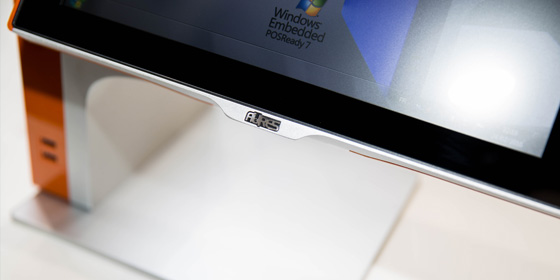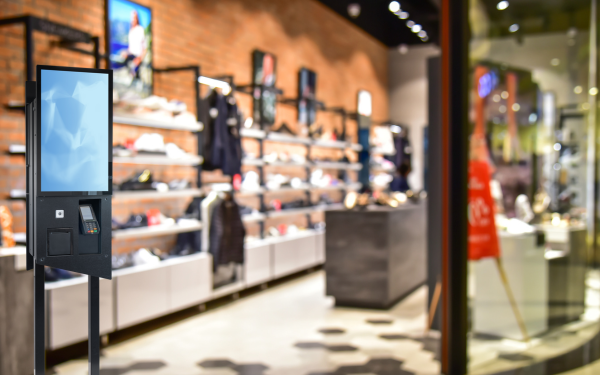Fashion retail is far from alone in having had a tough time since the COVID-19 pandemic. But there’s no doubt that the sector faces a perfect storm of challenges. Labor shortages, supply chain disruptions, cost increases across the board and plummeting consumer confidence have seen sales flatline.
Two in five US fashion brands don’t see the situation getting any better in 2025, either.
But if there’s one beacon of hope that fashion retailers are rallying around, it’s the belief that technology can drive positive change. According to one recent industry survey, upwards of 90% of fashion industry professionals believe tech is essential or important to how their business operates both now and going forward.
But given the challenging outlook, is this faith in tech any more than just wishful thinking? Or do fashion retailers have good reason to believe that leaning even harder into digital transformation can help weather the storm?
We’ve picked out four reasons why we’re backing fashion brands on the latter.
Joining up omnichannel experiences
It’s very clear by now that consumers are very much over the whole digital-physical divide in terms of how and where they shop. To today’s consumers, retail is retail, and whether they are shopping for their next outfit online or in person, they prioritize the same things. Choice, convenience, value, and an all-round satisfying experience.
More than that, people increasingly want to mix digital and physical modes of shopping. That might involve checking prices or comparing other outfits on their cell phone as they try on items in a store. Or taking photos to send to their friends on their socials for feedback. Whatever it is, the incentive for fashion retailers to make stores more digital-friendly spaces – and equally to align digital channels more closely with stores – is greater customer satisfaction and greater loyalty.
Leveraging data for personalization and engagement
Giving customers what they want when they want has always been a popular catchphrase in retail. But a lot of retailers over the years will have been forgiven for wondering if it’s more wishful thinking than practical reality.
However, with the rise of advanced data analytics and especially AI, diving deep into what customers really want and using those insights to provide tailored, personalized experiences is very much possible. 80% of fashion businesses have either invested in AI projects or will invest in 2025. Combining AI with effective ways to capture data both in store and online will allow brands to build customer-focused strategies that improve engagement.
Leaning into sustainability
Modern consumers are increasingly clued up about what they buy and the apparel industry has found itself under the microscope. The backlash against ‘fast fashion’, a term that has become synonymous with exploitative production practices and enormous waste, has made many brands and retailers reconsider sourcing and supply chains. But at the same time, most people don’t want to, or aren’t in a position to, pay premium prices. That explains why the resale market for ‘pre-loved’ clothing is growing seven times faster than the wider apparel market.
For fashion retailers, it’s not just a case of making more sustainable choices. There’s a strong need to demonstrate those sustainable credentials to customers, too, and make it clear how you are empowering them to make their own sustainable choices. That can require some significant operational changes, not just in terms of sourcing but how you communicate the provenance of products, or embracing resale and repair.
These are big changes, but retailers have a lot of faith in the ability of technology to smooth the way. 72% have either already deployed tech to support sustainability commitments or say they will do so in the next 12 months, and 80% believe tech will have a positive impact on sustainability strategies beyond that.
Standing out from the crowd
Finally, the combination of increased competition and consumers being more and more select about what they buy has made it harder than ever for fashion retailers to win custom. We’ve outlined some of the ways tech can help with that – creating more joined-up omnichannel experiences, using data to boost engagement, improving and promoting sustainability. But there’s also an argument that simply being a ‘techy’ brand can help apparel businesses stand out from the crowd and get noticed.
This is an argument made recently by Google based on findings from a consumer survey undertaken with Kantar. It found that consumers can feel a little overwhelmed by the amount of choice available in the market, and look for brands that differentiate themselves clearly with a winning USP. The survey findings highlighted six USPs or brand identities that shoppers tend to gravitate towards in the fashion and apparel market – and one of them was they simply like ‘techy’ brands that come across as modern, efficient and innovative.
It makes sense – people see tech as shorthand for convenience, for efficiency, and for enhanced experiences. So embracing innovation as a fashion brand is not just about revamping your internal operations. It’s something to shout about as a way to grab attention.




